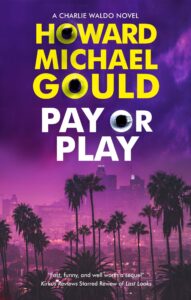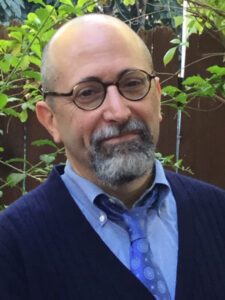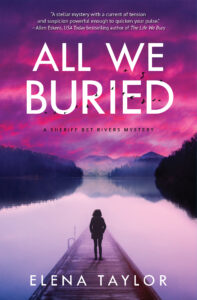Howard Michael Gould on memory.
Author Guest Post + Book & Author Information + Rafflecopter Giveaway
Waldo and Supreme Questions of Memory
by Howard Michael Gould
A number of years ago, our nation’s leadership was going through a crisis, some legal and ethical questions in the highest of places around the most consequential of subjects, and as sometimes happens in these instances, a special prosecutor was brought in to get to the bottom of the alleged wrongdoing, a serious legal mind with an impeccable reputation for sobriety and probity.
I found myself talking to a friend who, like me, went to a fancy top tier college, where he was, as it happened, a fraternity brother of that suddenly well-known jurist. “Yeah,” said my friend, “he hazed me.” Turns out, when this pillar of righteousness was twenty years old, he was the Pledge Captain in charge of locking each new frat member in a closet and not letting him out until he pounded down an entire six-pack.
My schoolmates at my own college went on to national prominence in law, medicine, finance, education, government, and the arts. They included several future MacArthur “genius” Grant winners, a U.S. Senator, even a head of state. While I was lugging my trunk into my very first college dormitory room, Harlan Coben was moving in upstairs, next door to David Foster Wallace. (When I published my own first novel at age 55, it was both sobering and liberating to realize that no matter what dizzying heights I might conceivably reach in the world of literature, I’d never be more than the third most successful author to come out of my freshman dorm).
So my first point here is, when you go to one of those schools, you have no idea who is going to go on to do what.
(Well, okay, the head of state was then-Prince Albert of Monaco; we all kinda knew what his gig was going to be.)
My second point is, kids are idiots. A seminal text of my wife’s and my parenting years was Yes, Your Teen is Crazy by Michael J. Bradley, Ed.D., which details the way the developing adolescent brain resembles that of an insane adult, and doesn’t reach maturity (read, “sanity”) until the mid-twenties. College kids constantly make impulsive choices that would mortify their older selves. They drink, they take drugs, they hook up with people they shouldn’t. Most of these decisions prove harmless in the long run.
Others don’t.
These truths were on my mind as I started developing my third Charlie Waldo novel, Pay or Play.
The central character of the investigation is Judge Ida Mudge, a spectacularly successful African American TV judge, a cross between Judge Judy and Wanda Sykes whose new million-dollar-a-day syndication contract makes her a perfect target for blackmail. Anonymous letters demand a million dollars and refer to a fraternity death which went underinvestigated thirty-five years prior.
As a private eye, non grata with the LAPD over his ugly exit from the force, Waldo has no access to forensics and has to solve cases the old fashioned way, through observation and deductive reasoning. This decades-old cold case proved a perfect vehicle: it let me play not only with things I’d learned about the adolescent brain, but what I’d observed about how our memories shape-shift over time to fit our emotional needs and the evolving stories we tell ourselves about ourselves.
All that, plus a fictional tinder box ignited by adolescent stupidity and bad behavior around alcohol and sex, filled my mind as I finished my detailed outline of the novel in late summer 2018. And suddenly—you may already be ahead of me—the same subjects were filling everyone’s mind.
Because Brett Kavanaugh was about to be confirmed as an Associate Justice of the Supreme Court.
Only, a woman named Christine Blasey Ford was coming forward to tell her story about a night that went awry, about a horrible experience she described, in the language of the clinical psychologist she’d become, as “indelible in the hippocampus.” Her testimony was galvanizing, convincing.
Kavanaugh was angry and emotional in his denials.
Complicating it all, Dr. Ford named three witnesses she was sure could testify to the accuracy of her recollection, but it turned out they had no memory of the incident. Or claimed not to have. Even her close female friend said she didn’t know Kavanaugh, let alone recall being at a tiny gathering with him.
What did all of it mean?
Deep into the writing of my novel on the same subject, I expected the questions which obsessed me to dominate the national conversation. What things do we remember? How much can we trust other people’s memories? Or what they claim their memories to be? How well, even, can we trust our own?
Of course, those questions barely came up at all. Virtually every observer reflexively gravitated to certainties which flattered his or her own political priors.
But to the author of Pay or Play, those questions made the Kavanaugh hearings much more interesting than either side of the news coverage would allow.
And to a reader of Pay or Play, I wonder whether your experience of the Kavanaugh hearings will also add an extra layer to your experience of the book.
Excerpt Pay or Play by Howard Michael Gould
ONE
It wasn’t the sex that set Waldo’s woods on fire, it was the afterglow.
Surrounded by forest, nearly all its structures made of wood, his mountain town of Idyllwild had already seen five homes destroyed, the remainder evacuated. Route 243 was closed on both sides, leaving Waldo and all the other residents cut off and fearing the worst. As the record temperatures of summer 2018 scorched California, infernos blossomed up and down the state. Six people were dead in the one up north, the one called the Carr.
Watching clips of his wildfire, the Cranston, from a hundred miles away and the safety of Lorena’s house, Waldo knew it would take a miracle to keep the rest of Idyllwild from being consumed. He didn’t know whether his own cabin was already lost. He didn’t know if his chickens were still alive.
What he did know was this: the conflagration was all his fault.
Not literally, of course. It wasn’t like he’d lit the match. And he hadn’t set the tinderbox. The planet was rebelling. Climate change had made this fire season hotter and drier. Forest-management practices left more fuel on the ground, too, the unintended repercussion of conscientious wildlife protection. Those were the reasons Waldo’s mountain was burning.
Those and, according to the news, arson.
But Waldo knew better. Call it karma, call it moral justice – Waldo knew his own wobbling had something to do with it, too.
Four years earlier, Waldo learned in an instant the precariousness of the world, the damage one man could do, the damage he could do, when his own zealous police work had led to the death of an innocent man. His life since had been a daily struggle not to do any more.
He had resigned from the force, ghosted his girlfriend Lorena and everyone else he knew, and bought twelve acres in Idyllwild, in the San Jacinto mountains, where he lived for three solitary years in self-sustaining austerity, making a near religion of his commitment to a zero-carbon footprint and to owning no more than One Hundred Things. And that worked for him, at least until Lorena showed up and triggered the chain of events which drew him away from his refuge and back into civilization.
She’d hoped to coax him into joining her expanding PI business, and back into their relationship, too. The latter took; the former, not so much. He did work one case with her, a missing-persons that turned rancid and left Waldo with no taste for more. She eventually stopped trying and seemed to accept the relationship as it was. He’d come down the mountain for a visit about once a month, usually for a few days when Willem – the male model she’d married during Waldo’s absence, estranged now but still her housemate – was out of town on a shoot.
It was a delicate equilibrium: less than Lorena wanted, but enough; a constant test of Waldo’s punishing minimalism, but within bounds he could handle.
Then Willem, wanting to cash in on the overheated L.A. real estate market, insisted that Lorena agree to sell their jointly owned Koreatown bungalow as a final condition of their divorce. He moved out the day the papers were signed.
The next time Waldo came to visit, the common spaces looked barren, Willem apparently the owner of most of their thousands of Things, including almost all the furniture.
Lorena looked lost in the empty house. That plucked at Waldo in ways he didn’t expect, and he ended up staying in town longer than he ever had before, almost two weeks. One night, after lovemaking fierce and profound even by their standards, Lorena said, ‘What if we got a place together?’
In a sense, it was reasonable to muse on.
In another, it was absurd. How could that work? In L.A., just as in Idyllwild, Waldo maintained his exacting rules for living, not allowing himself even an extra toothbrush to leave at her place. Meanwhile, in the face of his asceticism, Lorena clung to her consumerist pleasures all the harder. So, did she mean for him to give up his cabin, and to battle out all their joint decisions, item by item, precept by precept? Or did she mean for him to keep his cabin, and cohabit a second home, profligate beyond imagining?
That these questions were even on the table was a sign that
Waldo had gotten too comfortable here. His heart starting to race, he silently recited his catechism, the covenant with the world which he’d devised and repeated aloud regularly for his first few months alone on his mountain until it had become ingrained:
Don’t want, don’t acquire, don’t require.
Don’t affect.
Don’t hurt.
The answer was not complicated. It was not ambiguous. He needed to hold fast. Every time he hadn’t, every time he let his resolve slip, every time he compromised the principles which had redeemed him, something had gone wrong.
And this compromise would be bigger than anything Waldo had ever contemplated, the consequences surely bigger, too. He had to say no. Of course he had to say no.
He looked over at Lorena, her eyes closed, her lip curled in a gentle smile, and before he knew it he too was lost in the afterglow. That ruinous afterglow.
And what Waldo said was: ‘Maybe.’
By the next afternoon, his mountain was in flames.
Four days later, alone in Lorena’s barren kitchen, Waldo scoured the internet for any morsel of new information. Evacuated – what did that actually mean? Had anyone remained to support the firefighters, or was it a ghost town? Not that he knew any of his fellow denizens anyway, even after four years, other than his batty neighbor Hilda Flitt, who kept an eye on his chickens when he was away. And Hilda wasn’t answering her phone.
Nor was Lorena, for that matter. He shot her another text and went back to surfing.
Surfing and blaming himself for the fire.
Not that he could talk about his guilt with Lorena. She’d already said something about him ‘getting worse’ and one time (at a downtown Szechuan restaurant, after he questioned the waiter as to why a restaurant that puts Environment Friendly! on the menu still tops the meal with plastic-wrapped fortune cookies), even asked whether he ‘ever thought about talking to somebody.’ Sure, why wouldn’t she want that? It’d be so much easier to have that ‘somebody’ browbeat Waldo into complaisance than to develop some environmentally responsible habits herself.
Maybe, though, this was what ‘getting worse’ looked like. Holding to rules was one thing, magical thinking another entirely, and after all, it was the guy with the barbecue lighter and the WD-40 who’d set the mountain ablaze, not Waldo.
Still.
It all happened just hours after Waldo’s maybe, and it was Waldo’s town about to be devoured, and Detective III Charlie Waldo had never believed in coincidences.
As the day wore on, the news from Idyllwild began to improve. Firefighters, dropping retardant from the sky, managed to cut the inferno just before it reached the Arts Academy, and suddenly they were using the words ‘mostly contained.’ Deep into the night, Hilda Flitt still wasn’t answering her phone. But the authorities had reopened 243, so Waldo could go back in the morning to see for himself whether his home was safe, whether he even had any Things left, save the ones on his back.
Waldo waited up for Lorena like he always did. He sprawled on her bed with his Kindle, chipping away at Richard White’s massive history of the late nineteenth-century United States, specifically a grim chapter about how American ‘progress’ killed off the bison and pushed the Native Americans to the reservations. Even though Waldo enjoyed the book greatly – it filled multiple lacunae in his knowledge and was peculiarly relevant to the U.S. in 2018 – tonight he struggled not to put it down.
What he itched to do instead was stream another episode of his new addiction, the sinfully titillating Judge Ida Mudge, which Lorena had told him about just this week and which instantly wormed its way into Waldo’s limbic system like none of his favorite junk television shows ever had, not even prime MTV Cribs. But he’d already watched two, using up the daily hour he allowed himself.
Waldo pushed to the end of the chapter and checked Lorena’s bedside clock. It was past midnight, later than he ever stayed up in his woods. Was his junk TV ‘day’ defined by his sleep schedule, or by the clock? That is, could he allow himself to watch ‘tomorrow’s’ Judge Idas now? If he was going to spend much of the next day traveling, he might not have time to watch anyway – so why not allow himself a smidgen of ethical squinching and stream an episode? Or two.
The sound of Lorena’s key in the door saved him from the lapse.
He went out to meet her in the living room. ‘Sorry I didn’t answer your texts,’ she said. ‘I got caught up with something.’ Her vagueness didn’t throw Waldo like it would have during the jealous years. She added, ‘I don’t want to talk about it.’
He shrugged, You don’t have to.
Apparently she did, though. ‘Something with an op. I had to take over a tail.’
‘Fat Dave?’ Lorena had three part-time operatives, two LAPD washouts and a wannabe. She swore they carried their weight but he found that hard to believe. Fat Dave Greenberg, whose rep as a world-class douchebag radiated far beyond Foothill Division, was the worst of them, as far as Waldo was concerned.
She repeated, ‘I don’t want to talk about it,’ and Waldo repeated his you don’t have to shrug, but again she did. ‘Reddix,’ she said. Lucian Reddix was a young African American, the only one Waldo didn’t know from the force and the one for whom Lorena had the softest spot. ‘He was on a marital tail, followed the subject into a bar. Caught her with her boyfriend, was starting to shoot them on his phone . . . but the bartender came over and he asked for a beer.’
‘So?’
‘So they carded him. He’s not twenty-one until November.’ And this was her star. ‘It turned into a thing. Kid was sure he was made. Don’t say it.’
Waldo didn’t have to; he’d said plenty in the past. These jokers were one more reason not to enmesh himself in Lorena’s business.
‘Anyway,’ she said, ‘I went over and picked it up for him.’
‘Get what you need?’
‘And then some. Too cheap for a motel, these two. Got it on right in his car. Anyway, I wasn’t checking my texts – sorry. Listen,’ she said, changing the subject, ‘I could use a favor.’
He tensed; something in her voice told him it had to do with work. ‘Yeah?’‘I’ve got a meeting with a prospective in a couple days. It’d help to have you there.’ It was the first time in half a year she’d tried to coax him onto a case. ‘I’m pretty sure you’d like this one.’ He’d heard that before.
Waldo said, ‘243’s open.’
‘Oh. Fire’s out?’
‘Contained enough, I guess. I’ve got to get up there.’
She drew a breath at the rejection. It had cost her something to ask again.
‘How?’ she said. ‘Not on your bike . . .?’ Since Waldo basically restricted himself to transportation that was either public or self-propelled, each trip from L.A. to Idyllwild meant a bus and then a tortuous, torturous bicycle climb. She said, ‘I could drive you.’
And then, she was no doubt thinking, she could drive him back down, once he was assured that his property was all right. Back to L.A. and her prospective client meeting. Back to L.A. and looking for a place for them to share.
He couldn’t do it. Besides, he had long ago decided that he’d grant himself a waiver to ride in a private automobile only with someone who’d already have been making the drive without him; clearly that didn’t apply here. He said, ‘I’ll be fine.’
‘With the smoke and everything? That’s so not healthy.’
She was probably right, but he tipped a shoulder anyway, a second rejection.
‘Waldo . . .’
‘I’ll be careful.’ Waldo knew he should hit her with a third, to rip off the Band-Aid quickly and tell her straight out that he wasn’t going to move in with her.
But she stopped him cold with the lopsided quarter-grin that grabbed him every time. ‘Last night in town is usually pretty good,’ she said, and headed to the bedroom, grazing the back of his neck with her fingertips as she passed.
He heard her start the shower. He knew he wouldn’t be able to tell her tonight. Not even if that meant the winds would pick up, the fire would jump the retardant line, and his woods would be imperiled all over again.
Maybe this time it would be the sex that burned it all down.
Pay or Play by Howard Michael Gould

Blackmail, sexual harassment, murder . . .
and a missing dog: eccentric, eco-obsessed LA private eye Charlie Waldo is on the case in this quirky, fast-paced mystery.
Paying a harsh self-imposed penance for a terrible misstep on a case, former LAPD superstar detective Charlie Waldo lives a life of punishing minimalism deep within the woods, making a near religion of his commitment to owning no more than One Hundred Things.
At least, he’s trying to. His PI girlfriend Lorena keeps drawing him back to civilization – even though every time he compromises on his principles, something goes wrong.
And unfortunately for Waldo, all roads lead straight back to LA. When old adversary Don Q strongarms him into investigating the seemingly mundane death of a vagrant, Lorena agrees he can work under her PI license on one condition: he help with a high-maintenance celebrity client, wildly popular courtroom TV star Judge Ida Mudge, whose new mega-deal makes her a perfect target for blackmail.
Reopening the coldest of cases, a decades-old fraternity death, Waldo begins to wonder if the judge is, in fact, a murderer – and if he’ll stay alive long enough to find out.
Pay or Play is the third in the Charlie Waldo series, following Last Looks and Below the Line. Last Looks was turned into a major motion picture, starring Charlie Hunnam as the offbeat private investigator.
To purchase Pay or Play, click on any of the following links: Amazon | Barnes & Noble | Goodreads
Genre: Thriller, Private Detective
Published by: Severn House Publishers Limited
Publication Date: December 7th 2021
Number of Pages: 224
ISBN: 0727850857 (ISBN13: 9780727850850)
Series: Charlie Waldo, #3
Howard Michael Gould
 Howard Michael Gould graduated from Amherst College and spent five years working on Madison Avenue, winning three Clios and numerous other awards.
Howard Michael Gould graduated from Amherst College and spent five years working on Madison Avenue, winning three Clios and numerous other awards.
In television, he was executive producer and head writer of CYBILL when it won the Golden Globe for Best Comedy Series, and held the same positions on THE JEFF FOXWORTHY SHOW and INSTANT MOM. Other TV credits include FM and HOME IMPROVEMENT.
He wrote and directed the feature film THE SIX WIVES OF HENRY LEFAY, starring Tim Allen, Elisha Cuthbert, Andie MacDowell and Jenna Elfman. Other feature credits include MR. 3000 and SHREK THE THIRD.
His play DIVA premiered at the Williamstown Theatre Festival and La Jolla Playhouse, and was subsequently published by Samuel French and performed around the country.
He is the author of three mystery novels featuring the minimalist detective Charlie Waldo: LAST LOOKS (2018) and BELOW THE LINE (2019), both nominated for Shamus Awards by the Private Eye Writers of America, and PAY OR PLAY (2021). The feature film version of LAST LOOKS, starring Charlie Hunnam and Mel Gibson and directed by Tim Kirkby, will premiere February, 2022; Gould also wrote the screenplay.
To learn more about Michael, click on his name, photo, or any of the following links: Goodreads, BookBub, Instagram – @howardmichaelgould, Twitter – @HowardMGould & Facebook – @HowardMGould
Visit all the stops on the Book Tour for Howard Michael Gould!
01/01 Review @ Book Reviews From an Avid Reader
01/03 Review @ Pick A Good Book
01/04 Guest post @ The Book Divas Reads
01/05 Review @ Nesies Place
01/06 Interview @ Mythical Books
01/06 Showcase @ Silver’s Reviews
01/07 Review @ Pat Fayo Reviews
01/08 Guest post @ Author Elena Taylors Blog
01/09 Guest post @ Books, Ramblings, and Tea
01/10 Guest post @ Writers and Authors
01/11 Review @ sunny island breezes
01/12 Showcase @ Archaeolibrarian – I Dig Good Books!
01/13 Showcase @ Celticladys Reviews
01/14 Guest post @ Novels Alive
01/15 Showcase @ nanasbookreviews
01/16 Review @ The World As I See It
01/17 Showcase @ Quiet Fury Books
01/19 Review @ Novels Alive
01/20 Review @ Brooke Blogs
01/26 Showcase @ 411 ON BOOKS, AUTHORS, AND PUBLISHING NEWS
01/26 Showcase @ The Authors Harbor
01/30 Review @ flightnurse70_book_reviews
 Elena Taylor is the author of All We Buried, available now in print, e-book, and audio book format at all your favorite bookstores and on-line retailers.
Elena Taylor is the author of All We Buried, available now in print, e-book, and audio book format at all your favorite bookstores and on-line retailers.
For more information on All We Buried, click on the link here to visit the home page.
Silver Falchion Award Finalist, Best Investigator 2020
Foreword INDIE Award Finalist, Best Mystery 2020






Thanks so much for the guest post!
“My second point is, kids are idiots.” LOL, love it! My husband and I, whenever we question why people do what they do, always say – “Some people are stupid.”
I think I would like Waldo, my kind of character.
I loved this guest post! My kind of character too!